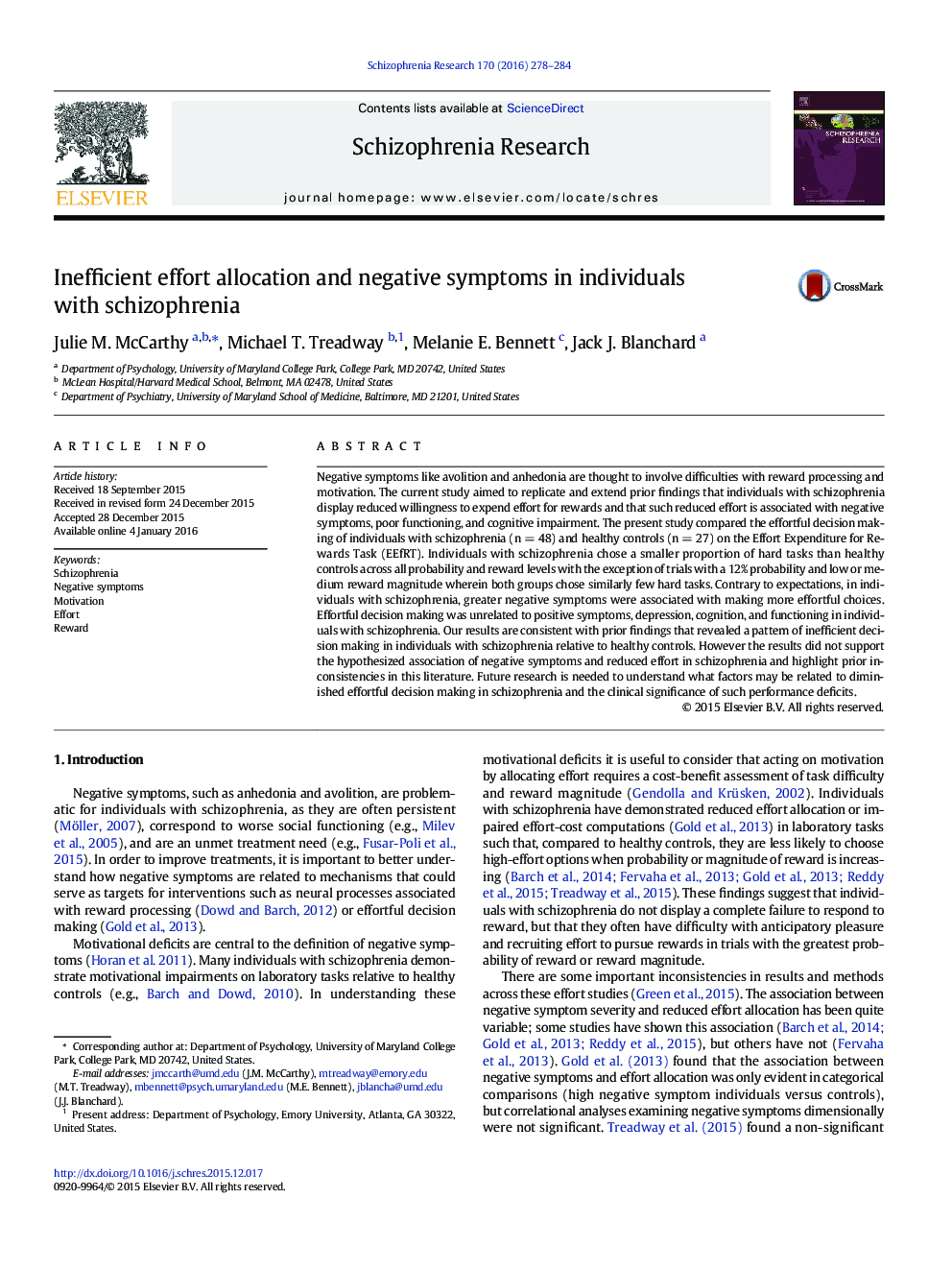| Article ID | Journal | Published Year | Pages | File Type |
|---|---|---|---|---|
| 6823241 | Schizophrenia Research | 2016 | 7 Pages |
Abstract
Negative symptoms like avolition and anhedonia are thought to involve difficulties with reward processing and motivation. The current study aimed to replicate and extend prior findings that individuals with schizophrenia display reduced willingness to expend effort for rewards and that such reduced effort is associated with negative symptoms, poor functioning, and cognitive impairment. The present study compared the effortful decision making of individuals with schizophrenia (n = 48) and healthy controls (n = 27) on the Effort Expenditure for Rewards Task (EEfRT). Individuals with schizophrenia chose a smaller proportion of hard tasks than healthy controls across all probability and reward levels with the exception of trials with a 12% probability and low or medium reward magnitude wherein both groups chose similarly few hard tasks. Contrary to expectations, in individuals with schizophrenia, greater negative symptoms were associated with making more effortful choices. Effortful decision making was unrelated to positive symptoms, depression, cognition, and functioning in individuals with schizophrenia. Our results are consistent with prior findings that revealed a pattern of inefficient decision making in individuals with schizophrenia relative to healthy controls. However the results did not support the hypothesized association of negative symptoms and reduced effort in schizophrenia and highlight prior inconsistencies in this literature. Future research is needed to understand what factors may be related to diminished effortful decision making in schizophrenia and the clinical significance of such performance deficits.
Related Topics
Life Sciences
Neuroscience
Behavioral Neuroscience
Authors
Julie M. McCarthy, Michael T. Treadway, Melanie E. Bennett, Jack J. Blanchard,
